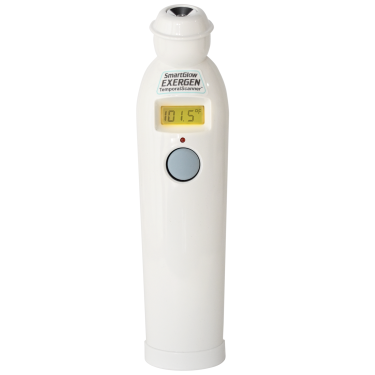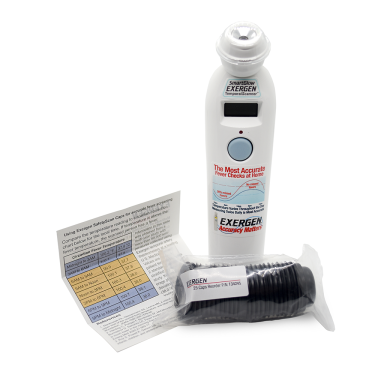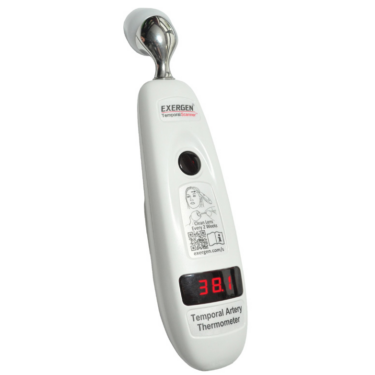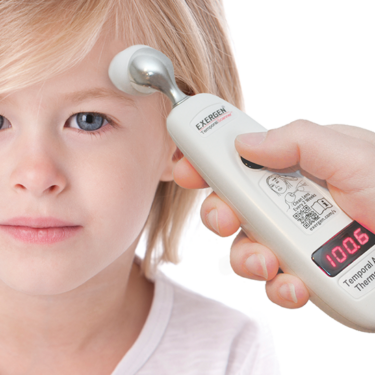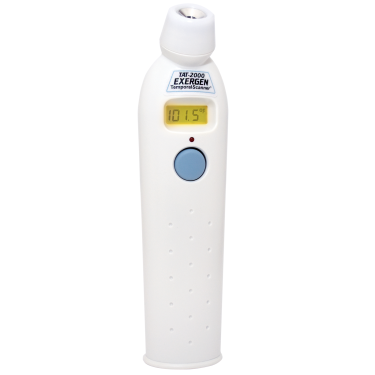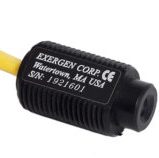Companies Implement Ineffective Screenings to Give Employees and Customers Misleading Reassurance
A new study[1] published in the Journal of Occupational and Environmental Medicine (JOEM) shows senior management overriding the advice of their medical directors regarding screening employees with non-contact thermometers. The study also shows non-contact thermometers are inaccurate, and those screenings are not recommended by medical directors. The screenings were conducted with non-contact infrared thermometers (NCITs) or alternately with fixed-position thermal cameras, which is the norm for use in public screenings yet proven inaccurate in study after study, including this one.
JOEM reports that when 14 multinational companies conducted a total of 15 million employee temperature screenings to track for fever, the number one symptom of COVID-19, fewer than 700 fevers were identified. Of these, only about 53 cases, or 8% of people, tested positive for COVID-19. This equates to 1 out of 300,000 employees. By contrast, about 2,000 workers with diagnosed COVID-19 were in the workplace but were not detected by screening. One case of COVID-19 was identified by screening for approximately every 40 cases that were missed.
A survey of senior management at participating companies viewed these inaccurate non-contact temperature screening programs favorably, in spite of advice from medical directors, seeing them as a way to reassure employees and show customers that they were trying to provide a “COVID-19-safe” environment. Notably, the majority of corporate medical departments at the companies said they did not find the non-contact screenings useful.
“There’s no question that temperature screening with non-contact thermometers will yield inaccurate results, making it ‘COVID theater’ rather than effective, accurate temperature screening for fever,” said Francesco Pompei, Ph.D., CEO of Exergen Corporation. “These major companies, like many other organizations, are promoting a misleading sense of security to their employees and customers by promoting screening with inaccurate no-touch thermometers.”
About Exergen Corporation
Exergen manufactures two series of the TemporalScanner thermometer: a professional version for hospitals and clinics, and a consumer version sold in major retailers nationwide. More than two billion temperatures are taken each year with TemporalScanners. Used in thousands of hospitals and clinics across the country as well as in millions of homes, TemporalScanners are the #1 preference of pediatricians, nurses, and mothers. The Exergen TemporalScanner’s accuracy is supported by more than 80 peer-reviewed published studies covering all ages from preterm infants to geriatrics and all care areas from hospitals to homes. For additional information, visit www.exergen.com.
A study[1] published by scientists at Johns Hopkins University and the University of Maryland shows that non-contact thermometers are inaccurate and should not be used for public health screenings. Additional research supports this, with studies[2] showing that non-contact thermometers miss as many as 9 out of 10 fevers and create a false sense of security because readings can be skewed by other factors such as air temperature, level of activity, and more.
[1] Wright and Mackowiak 2021. Why temperature screening for coronavirus disease 2019 with noncontact infrared thermometers does not work. Open Forum Infectious Diseases, Volume 8, Issue 1, January 2021, ofaa603, https://doi.org/10.1093/ofid/ofaa603.
[2] Khan et al. Usefulness of Forehead Infrared Thermometers to Scan Patients for Fever During COVID-19 Pandemic. Pak Armed Forces Medical Journal. 2020 Sept 14.
A study[1] published by scientists at Johns Hopkins University and the University of Maryland shows that non-contact thermometers are inaccurate and should not be used for public health screenings. Additional research supports this, with studies[2] showing that non-contact thermometers miss as many as 9 out of 10 fevers and create a false sense of security because readings can be skewed by other factors such as air temperature, level of activity, and more.
[1] Wright and Mackowiak 2021. Why temperature screening for coronavirus disease 2019 with noncontact infrared thermometers does not work. Open Forum Infectious Diseases, Volume 8, Issue 1, January 2021, ofaa603, https://doi.org/10.1093/ofid/ofaa603.
[2] Khan et al. Usefulness of Forehead Infrared Thermometers to Scan Patients for Fever During COVID-19 Pandemic. Pak Armed Forces Medical Journal. 2020 Sept 14.
